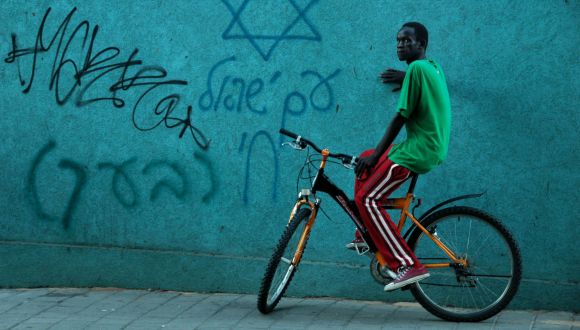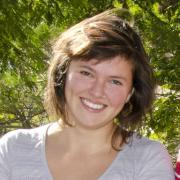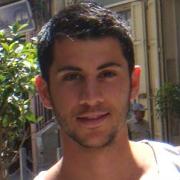Migration Nation
TAU’s new International MA in Migration Studies is positioning Israel at the forefront of the emergent field, providing students from across the world a unique, interdisciplinary window into a humanity on-the-move
From the biblical Israelite exodus from Egypt to the post-colonial flood of North African migrants into Europe, waves of migration have defined human history. Given today’s advances in transportation, technology and the blurring of national borders that comes with globalization, global human migration as a phenomenon and as an academic field has never been more pertinent.
Now, a select group of students from around the world are studying in Tel Aviv University’s new English-taught International MA in Migration Studies. One of the 12 graduate degrees offered by Tel Aviv University International, the program provides students the opportunity to engage critically with current international migration issues over one intensive year of studies.
The inaugural class is now immersed in the legal, cultural, economic and political aspects of migration. The students’ studies are grounded in the Israeli experience, a country built by immigrants from around the world, and nowadays host to a large non-Jewish migrant worker and asylum-seeker population.
Human tsunamis
The co-founder of the program, Prof. Noah Lewin-Epstein, former dean of TAU’s Gershon H. Gordon Faculty of Social Sciences, contextualizes the gravity of global migration in contemporary times: “In 2010, there were over 200 million people around the world classified as migrants, or defined as ‘foreign-born’ residents of countries, a fourfold increase since 2000. Remittances from migrants in 2010 reached $500 billion, more than triple the amount in 2000. As a means of comparison, this figure way surpasses the total international aid given to developing countries.” Prof. Lewin-Epstein attributes this astronomical increase to “growing inequality between North and South, the ease of migration in today’s world, and the ageing of populations of developed countries. Even though they are not necessarily accepting of migrants, their economies depend on them.”
The challenges of migration rings true in the Israeli context as well. “Israel is a migrant society, with strong institutional arrangements for dealing with a very specific type of migrant – Jews who are part of a ‘returning diaspora,’” explains Prof. Lewin-Epstein. However, Israel’s recent influx of non-Jewish foreigners, the results of labor migration and war in Africa, have strained both the resources and the tolerance of Israeli society, and “we are now dealing with diverse migrants, which the state is still trying to cope with.” Prof. Lewin-Epstein notes that “this wide range of migrant experiences, confined in a very small area, with very active NGOs and other bodies, allows our students to not only study the issues, but learn from people who are working with migrant groups directly.”
Fusing theory and actuality
Ilana Zengina, the program’s coordinator, explains that TAU’s MA in Migration Studies is one of only a dozen such novel programs offered in the world, including at top universities such as Oxford. “Previously, Migration Studies as a field fell between sociology and anthropology, and was usually offered as a specialization within one of these fields,” Maya explains, “and only recently has it come into itself.”
As Maya emphasizes, Israel’s small geographic size and informal culture allows students unparalleled access to politicians, policy-makers and practitioners. These conditions are pivotal to realizing the MA’s mission to bridge the academic and practical worlds. The degree achieves this by offering both a practicum and migration lab courses, which expose students to experts from leading organizations such as the International Organization for Migration and the United Nations High Commissioner for Refugees. “We’re looking at how these people deal with the challenges of migration on a day-to-day basis,” Maya stresses.
From Denver and Seoul and Stuttgart to Tel Aviv
For Shauna Ruda from Denver, Colorado, her interest in Migration Studies is deeply personal. The granddaughter of Holocaust survivors, Shauna recounts how the American Jewish Joint Distribution Committee (JDC) – the world’s largest Jewish humanitarian aid organisation – employed her grandmother to interview displaced people in post-war Europe. “My grandmother’s knowledge of languages greatly helped, and miraculously, through her work, she found my grandfather, whom she had wed in the Warsaw Ghetto before being separated from him.”
After completing a BA in Anthropology at the American University in Washington, DC, Shauna followed in her grandmother’s footsteps, working for the JDC in both Turkey and their New York headquarters, as well as volunteering in Haiti. Here in Tel Aviv, Shauna feels inspired: "We can sit in a classroom talking about policies for immigration and identity, but here it's a part of daily life - I walk down the street and I hear different languages around me. I go to southern Tel Aviv and I am immersed in the issues of refugees and asylum seekers." The importance of Jewish continuity and human compassion drives Shauna. As she emphasizes: “It’s no longer a question of if people are moving – we are moving , and we must find ways and tools to deal with it, remembering that human beings are valuable and must be treated with the dignity that they deserve.”

Pictured: MA in Migration Studies students overlooking the Bedouin locality of Qasr A Sir, learning about the history of the community and the challenges its residents face.
Another student, Yuri Keum, chose to come to Israel to pursue her graduate studies because it is “very experienced” in integrating migrants from diverse societies, in addition to her broader interest in Jewish studies. Born in Seoul, South Korea, Yuri moved to Toronto a decade ago, where she studied ESL and then history at York University. During her time there, Yuri “developed a strong fascination with multiculturalism.” Afterwards, she worked as a research analyst at the Center for Addiction and Mental Health (KMH), where she conducted field-work among migrants in Toronto. Yuri then worked at a community health center in Rexdale, a district in Toronto with many refugee and migrant households. Yuri intends to focus her MA thesis on comparing the migration policies of South Korea, Canada and Israel, three vastly different countries facing unique challenges.
Shauna and Yuri’s fellow student, Anna Stein, is interested in the intersection of identity, ethnicity and migration – no doubt sourced in her own experience as an immigrant following the collapse of the former Soviet Union. Born in Odessa, Ukraine, and raised in Stuttgart, Germany, from the age of eight, Anna completed two undergraduate degrees — one at the University of Konstanz, majoring in Art and Media Studies, and the other in project management and advertising. For Anna, the MA in Migration Studies is equipping her with “the academic vocabulary” to express and better pursue her interests, and she plans to write her thesis on the role of cultural ‘narratives’ in shaping society’s views of migrants.
As with TAU’s other international programs, the MA in Migration Studies embeds the student in an environment where theory is grounded in reality. Tel Aviv is a city that serves not only as a vibrant, fun-loving destination, but also as an open-air classroom, equipping students with the theoretical and real-world experiences they need to succeed as practitioners, researchers and policy-makers in the field.






